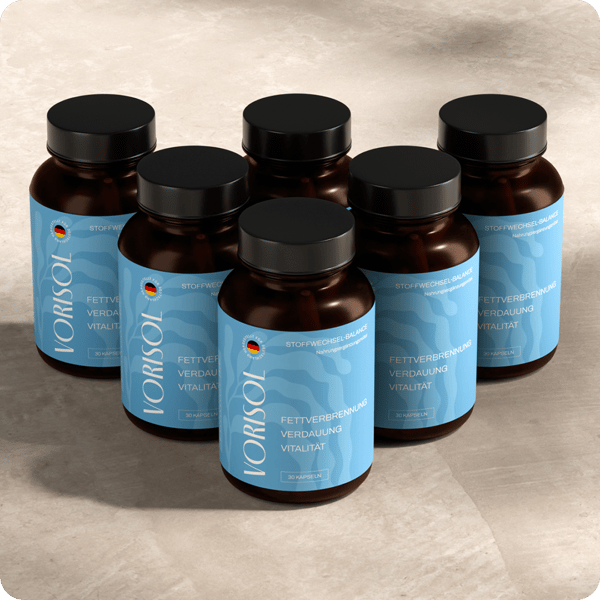
Introduction
Germany is leading Europe in energy-efficient infrastructure. One of the key technologies supporting this transition is Vorisol, short for “vorisolierte Rohrleitungen” (pre-insulated pipes).
These advanced pipe systems are designed to minimize energy loss, ensure durability, and comply with Germany’s strict environmental regulations. If you’re looking for information about Vorisol in Germany, this guide will cover what it is, how it works, applications, benefits, costs, and leading suppliers.
What is Vorisol?
Vorisol refers to factory-made, pre-insulated pipe systems. They consist of three main layers:
Carrier pipe – steel, copper, or PEX (cross-linked polyethylene).
Insulation layer – polyurethane foam or mineral wool for thermal efficiency.
Protective jacket – HDPE or steel for durability and weather resistance.
This design helps maintain stable temperatures, reduces heat loss, and ensures long-term cost savings.
➥✅Exclusive Details: *Vorisol Germany* Read More Details on Official Website!
Applications of Vorisol in Germany
Vorisol systems are widely used in Germany across multiple industries:
District Heating & Cooling – powering Germany’s urban energy networks.
Residential Buildings – for hot water, heating, and cooling.
Industrial Facilities – transporting steam, chilled water, or chemicals.
Renewable Energy – integration with solar thermal, biomass, and geothermal systems.
Why Vorisol is Important in Germany
Germany’s energy transition (Energiewende) and Building Energy Act (GEG) require more efficient heating and cooling systems. Vorisol supports these goals by:
Reducing energy consumption
Lowering carbon emissions
Extending system lifetime
Meeting DIN EN 253 and other German standards
Benefits of Vorisol Pipes
✅ Energy Savings – up to 60% less heat loss compared to uninsulated pipes
✅ Durability – resistant to corrosion, pressure, and climate stress
✅ Cost Efficiency – higher upfront investment, but lower long-term costs
✅ Quick Installation – prefabricated modules reduce construction time
✅ Regulatory Compliance – certified for German and EU building laws
Leading Vorisol Suppliers in Germany
Several major companies provide high-quality Vorisol solutions in Germany:
KELIT – DUO-PEX Vorisol pipes
Uponor – Ecoflex flexible pipe systems
Isoplus – district heating solutions
Brugg Pipesystems – large-scale infrastructure pipes
Rehau – RAUTHERMEX insulated pipes
Cost of Vorisol in Germany
Prices depend on pipe size, insulation thickness, and application:
Residential systems: €25–€60 per meter
Commercial buildings: €60–€120 per meter
District heating: €120–€250 per meter
💡 Pro Tip: Always calculate lifetime savings. Vorisol pays back quickly through energy efficiency.
German Standards for Vorisol
To ensure performance, Vorisol products must comply with:
DIN EN 253 – district heating pipes
DIN 16892/93 – PEX piping standards
GEG (Building Energy Act) – energy efficiency requirements
➥✅Exclusive Details: *Vorisol Germany* Read More Details on Official Website!
How to Choose the Right Vorisol System
When selecting a Vorisol solution in Germany, consider:
Pipe material (steel, copper, or PEX)
Operating temperature & pressure
Soil or above-ground installation
Required insulation thickness
Supplier warranty and support
Conclusion
Vorisol Germany is at the forefront of the country’s sustainable energy strategy. By reducing energy loss, improving efficiency, and ensuring compliance with regulations, Vorisol pipes are the smart choice for district heating, residential, and industrial projects.
If you’re planning an energy-efficient project in Germany, investing in certified Vorisol systems ensures long-term performance, cost savings, and environmental responsibility.
FAQs about Vorisol in Germany
1. What does Vorisol mean?
It comes from “vorisoliert”, meaning pre-insulated pipes.
2. How long do Vorisol pipes last?
Typically 30–50 years, depending on installation and material.
3. Are Vorisol pipes expensive?
Yes, but they deliver significant energy savings and lower lifecycle costs.
4. Where can I buy Vorisol in Germany?
Suppliers include KELIT, Uponor, Rehau, Isoplus, and Brugg Pipesystems.
5. Can Vorisol be used for cooling?
Yes, it is suitable for both heating and cooling applications.
